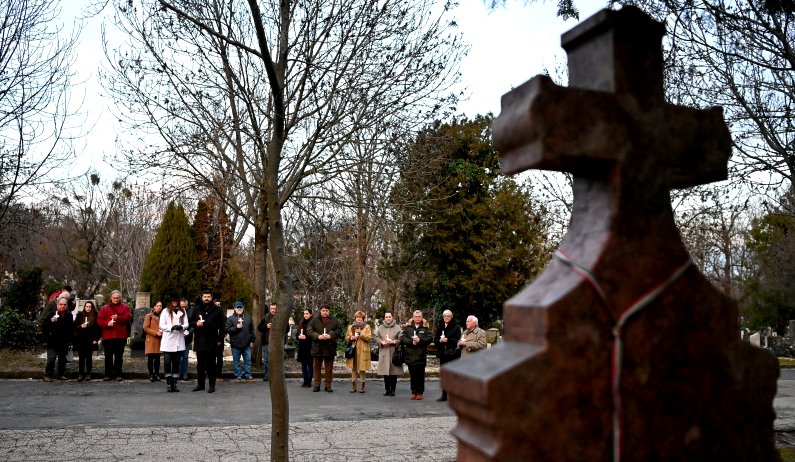A memorial service was held at the grave of Zsigmond Széchenyi, one of the best-known Hungarian African explorers and hunting writers, on the 125th anniversary of his birth in Budapest, in the Farkasrét cemetery.
125 years ago on January 23, Count Zsigmond Széchenyi was born in Nagyvára, who was a hunter and a writer in one person. He left behind countless works, which are exciting reading for both hunters and civilians - stressed Richárd Bors , deputy editor-in-chief of Nimród Vadászújság, at the commemoration on Monday.
His works contain countless sources of knowledge from which you can build, learn and be educated, he added, and then he highlighted two outstanding works of his writing work, the autobiographical book "How it began.. (confessions of a Hungarian hunter)" and its sequel, Holidays, of which - a hunting test could also be taken.
He recalled the tumultuous life of Zsigmond Széchenyi, in which prosperity and hunting were followed by displacement. According to Richárd Bors, Zsigmond Széchenyi was able to preserve his dignity throughout his life and left a tradition for posterity that hunters of today must preserve.
"Only those who are forgotten die, this will never happen to him," said Richárd Bors.
Tamás Gyorgyevics drew attention, among other things, to the fact that the birthplace of Zsigmond Széchenyi is still standing in Nagyvárad, with a memorial plaque on it. As he said, he did not know Zsigmond Széchenyi personally, only through the narration of his wife Zsigmond Széchenyi Margit Hertelendy . "Then, in 36 years, the picture became a little clearer, I could hold and read his letters from his childhood and from the front, the Csui!. and Nahar's original manuscript, I was able to browse through his expedition photo albums, I was able to see his evacuation documents, I was able to visit the apartment where he lived for the last time," recalled the researcher who wrote the book How It Began. after reading the book, he bought the works of Zsigmond Széchenyi that had been published until then, his admiration for him grew more and more, he was fascinated by the hunting adventures and the inaccessible exotic landscapes. "And I began to see the writer in him more and more," he explained.
According to Tamás Gyorgyevics, in addition to Zsigmond Széchenyi's innate talent, he was unusually a real, conscious writer in hunting literature: he collected synonyms, wild flower names, Swahili expressions, and literary quotations. Its seemingly effortless style was created as a result of repeated rewriting and polishing. "The knowledge that his four-language specialized hunting library gave him was not wasted," he pointed out, calling Zsigmond Széchenyi a unique hunting writer who, in addition to his practical skills, also possessed diverse theoretical knowledge.
Tamás Gyorgyevics also remembered Margit Széchenyi Zsigmondné Hertelendy, who died in 2021, and who preserved, nurtured and kept alive the memory of the defining figure of Hungarian hunting during her fifty-four years of widowhood. "It is thanks to him that Zsigmond Széchenyi is still known today and his books are still read today," emphasized the researcher.
Source and title image: MTI/Tibor Illyés












